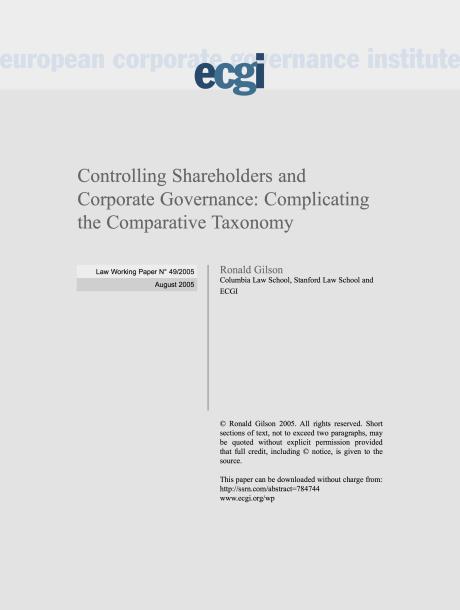
Controlling Shareholders and Corporate Governance: Complicating the Comparative Taxonomy
Abstract
The focus of comparative corporate governance scholarship is shifting from takeovers to controlling shareholders in recognition of the fact that public corporations everywhere but in the U.S. and U.K. are characterized by a shareholder with effective voting control. Debate is now turning to the merits of controlling shareholder systems, both on their own terms and in comparison to the U.S. and U.K. widely held shareholding pattern. To date, the debate has treated the controlling versus widely held distinction as central, disagreeing over whether a particular country owed its characteristic shareholder distribution to the quality of minority shareholder legal protection or to politics. This simple dichotomy is far too coarse to provide an understanding of the diversity of ownership structures and their policy implications. This article complicates the analysis of controlling shareholders and corporate governance by providing a more nuanced taxonomy of controlling shareholder systems. In particular, it distinguishes between efficient and inefficient controlling shareholders, and between pecuniary and non-pecuniary private benefits of control. The analysis establishes that the appropriate dichotomy is between countries with functionally good law, which support companies with both widely held and controlling shareholder distributions, and countries with functionally bad law, which support only controlling shareholder distributions. In this account, the United States and Sweden are the same side, rather than on opposite sides of the dividing line. The articles examines the different understanding of the role of controlling shareholders in corporate governance and the policy implications that flow from a taxonomy that focuses on support of diverse shareholder distributions.












